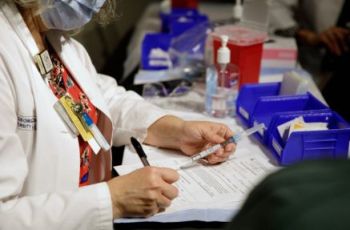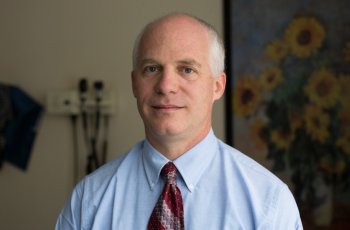Featured News
George Washington University (GW) is excited to share that it launched its chapter of the National Academy of Inventors (NAI) on the 26th of April, 2023.
Days ahead of the start of World Immunization Week, April 23–29, the Centers for Disease Control and Prevention recommended on Wednesday that adults 65 and older and those with weakened immune systems receive another dose of the reformulated COVID-19 booster. It’s a timely reminder that vaccines…
Seeing a primary care physician (PCP) is about more than just an annual exam or treatment for the occasional bout of sickness. Rona Smith, MD, a board-certified internal medicine physician with the George Washington University Medical Faculty Associates, explains the ins-and-outs of primary care…
Nearly 250,000 people in the United States will receive a lung cancer diagnosis in 2022, according to the American Cancer Society. However, thanks in part to a drop in smoking nationwide, the number of new lung cancer diagnoses is declining steadily each year.
More than 100 people were in attendance, as Washington, D.C. leaders and representatives from Universal Health Services, the George Washington (GW) School of Medicine and Health Sciences (SMHS), and GW Medical Faculty Associates (GW MFA), cut the ribbon on a brand-new Cedar Hill Urgent Care Center…
Stork bites and angel’s kiss sound poetic, but they actually describe vascular birthmarks, skin changes that commonly appear at or shortly after birth. These marks may change over time, so it’s important to get a dermatologist’s opinion from day one.
As psoriasis sufferers know, flare-ups can be uncomfortable and anxiety-inducing, creating an unending cycle when stress then exacerbates those flare-ups. However, it doesn’t have to be that way.
Pooja Sodha, MD, director of the Center for Laser and Cosmetic Dermatology at the George Washington University (GW) Medical Faculty Associates and assistant professor of dermatology at the GW School of Medicine and Health Sciences, answers our questions on how acne forms and the ways to treat it.
A USCG-licensed captain, instructor, and rigging specialist has been brought safely to land after combined efforts from the George Washington University’s Maritime Medical Access team, the U.S. Coast Guard, the U.S. Air Force, commercial shipping, and assistance from a fellow yacht.
Extreme heat puts tremendous stress on your body and can lead to dehydration, heat exhaustion, and heatstroke, among other health-related consequences.









